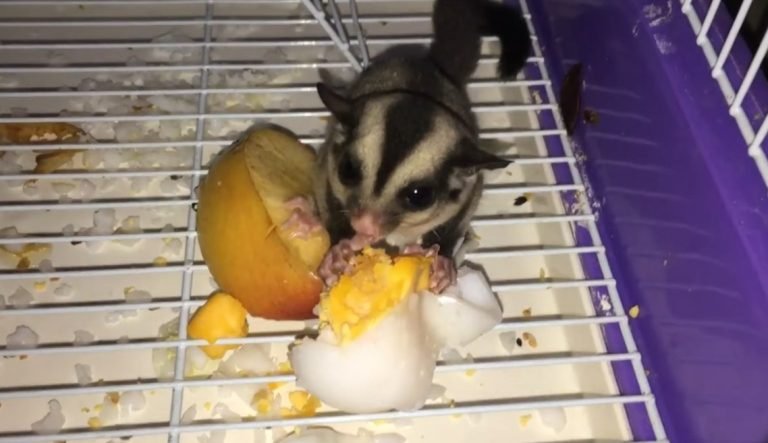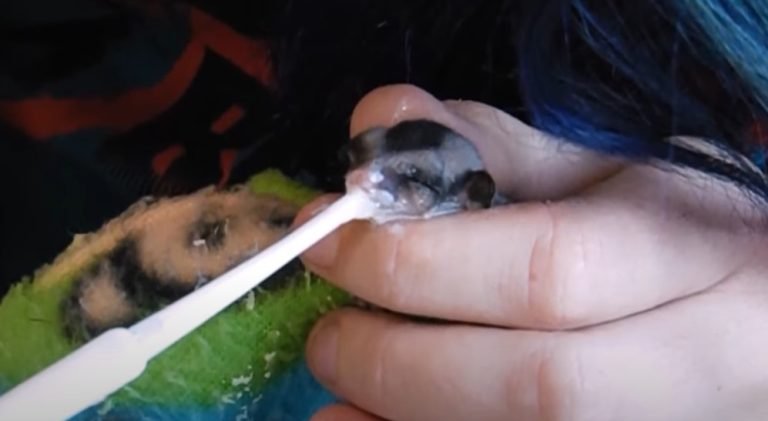What Should I Feed My Sugar Glider Daily
Feeding your sugar glider a balanced and nutritious diet is crucial to their overall health and well-being. As small creatures with unique dietary requirements, it’s important to know what foods are safe and suitable for your sugar glider to consume on a daily basis. So, what should you feed your sugar glider daily? Let’s dive deeper into this topic to ensure your furry friend receives the best possible care.
Sugar gliders are omnivorous animals, meaning they eat a combination of both plant matter and protein. In the wild, their diet consists of nectar, tree sap, fruits, insects, and small vertebrates. To replicate their natural diet in captivity, you’ll need to offer a variety of foods that meet their nutritional needs.
High-Quality Pellets
A good place to start when creating your sugar glider’s daily diet is with high-quality commercial pellets. These pellets are specifically formulated to provide a balanced mix of nutrients, including proteins, vitamins, and minerals. They should make up a significant portion of your sugar glider’s daily diet.
Look for pellets that are specifically designed for sugar gliders and avoid ones that contain excessive amounts of sugar or fillers. It’s also a good idea to choose pellets that have been fortified with calcium.

Fruits and Vegetables
Fresh fruits and vegetables should be an integral part of your sugar glider’s daily diet. These provide essential vitamins, minerals, and fiber. Some suitable options include:
- Apples
- Pears
- Blueberries
- Strawberries
- Mangoes
- Kiwi
- Carrots
- Sweet potatoes
- Leafy greens (spinach, kale, collard greens)
Ensure that fruits and vegetables are thoroughly washed before offering them to your sugar glider. It’s also important to remove any seeds, pits, or stems that may be toxic. Remember to rotate the variety of fruits and vegetables you offer to provide a well-rounded diet.
Proteins
Protein is an essential component of a sugar glider’s diet. In the wild, they acquire protein by consuming insects and small vertebrates. In captivity, you can replicate this by offering lean sources of protein such as:
- Mealworms
- Crickets
- Boiled chicken (boneless and skinless)
- Eggs (cooked and unseasoned)
Protein should make up around 25-30% of your sugar glider’s overall diet. It’s best to offer these protein sources in moderation, as excessive protein can be harmful to your pet.
Treats and Supplements
While treats should be given sparingly, they can be a useful tool for training and bonding with your sugar glider. Opt for healthy treats such as small pieces of fresh fruit or insects to prevent excessive sugar or fat intake. Remember to factor in treat calories when calculating your sugar glider’s daily food intake.
In addition to a well-rounded diet, it’s important to provide some key supplements to ensure your sugar glider gets all the necessary nutrients. These may include:
- Calcium supplement
- Multi-vitamin supplement
- Omega-3 fatty acid supplement
Consulting with a veterinarian who specializes in exotic pets is recommended to ensure you are providing the right supplements in the correct quantities for your sugar glider.
Water
Access to clean, fresh water is crucial for your sugar glider’s health. Provide a water source in a shallow dish or attach a water bottle to your pet’s cage. Make sure to change the water daily and clean the dish or bottle regularly to prevent bacterial growth.
Frequently Asked Questions
Q: Can sugar gliders eat nuts?
A: While nuts are a good source of fats, they should be given sparingly to sugar gliders. Nuts are high in calories and can contribute to obesity if overfed. Additionally, certain nuts, such as almonds, contain high levels of phosphorus, which can be harmful to sugar gliders in excess.
Q: Is it okay to feed my sugar glider human baby food?
A: Some baby foods can be a suitable part of a sugar glider’s diet, especially those made from natural ingredients without added sugars or seasonings. However, baby food should not replace a balanced diet and should only serve as an occasional treat or supplement.
Q: Can sugar gliders eat honey?
A: While sugar gliders are known to consume nectar in the wild, it’s best to avoid feeding them honey. Honey can harbor harmful bacteria, such as Clostridium botulinum, which can be toxic to sugar gliders. Stick to offering fresh fruits as a source of natural sugars.
Final Thoughts
Feeding your sugar glider a well-balanced diet is essential to their overall health and longevity. By providing them with a mixture of high-quality pellets, fresh fruits and vegetables, lean proteins, occasional treats, and necessary supplements, you can ensure they receive all the nutrients they need to thrive. Remember to consult with a veterinarian who specializes in sugar gliders for personalized dietary recommendations and advice. With the right diet and care, your sugar glider can live a happy and healthy life by your side.







